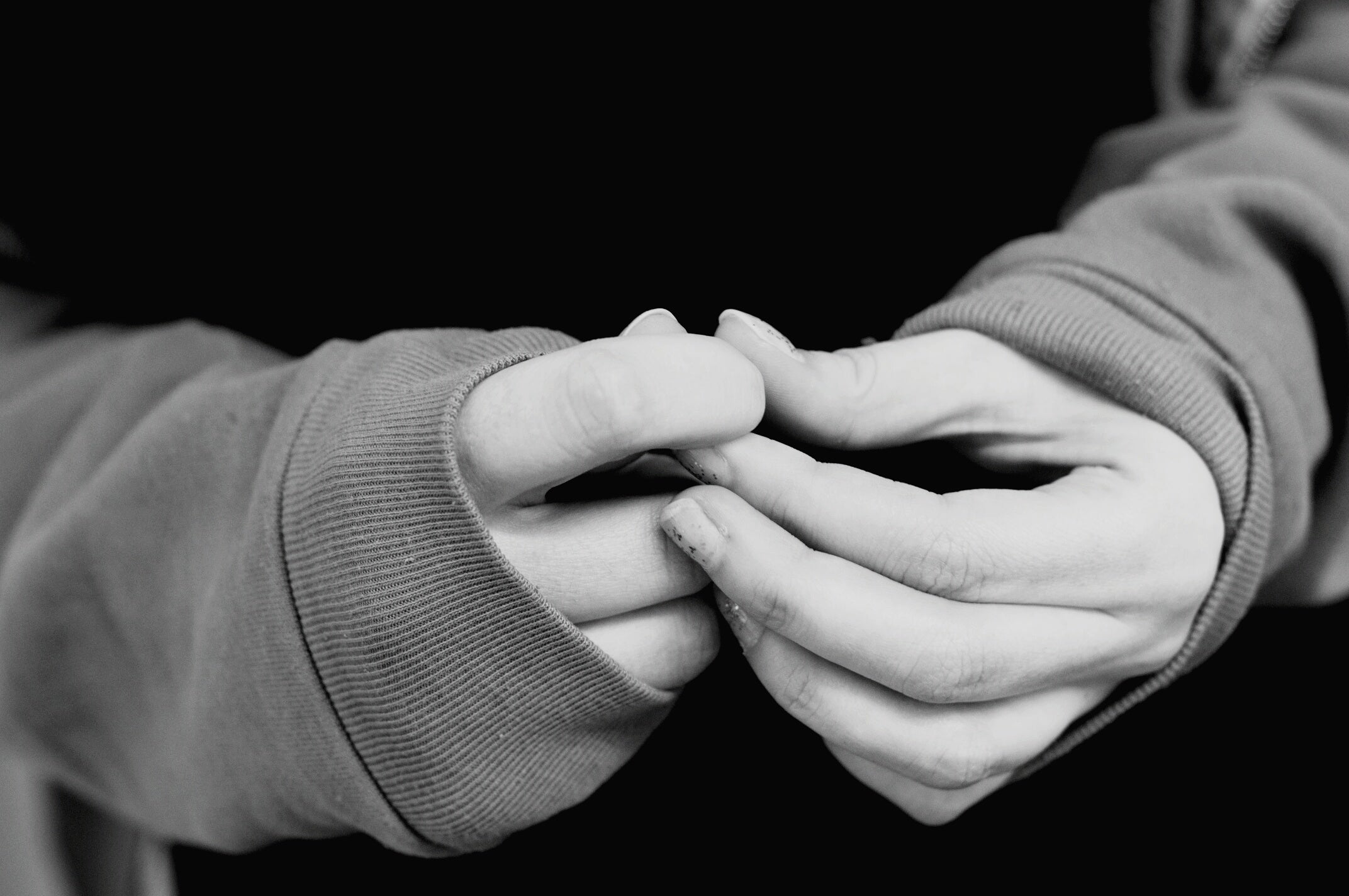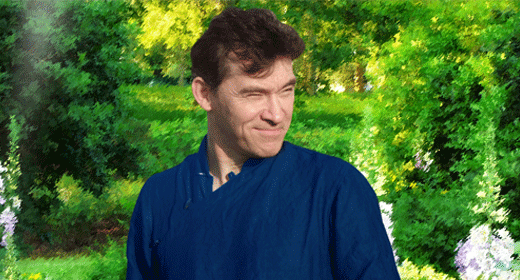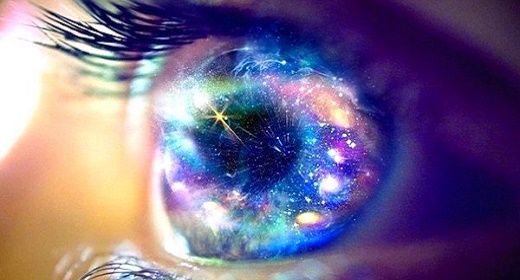by Steve Ayan: You probably do not understand yourself as well as you think you do…

1. Your perspective on yourself is distorted.
Your “self” lies before you like an open book. Just peer inside and read: who you are, your likes and dislikes, your hopes and fears; they are all there, ready to be understood. This notion is popular but is probably completely false! Psychological research shows that we do not have privileged access to who we are. When we try to assess ourselves accurately, we are really poking around in a fog.
Princeton University psychologist Emily Pronin, who specializes in human self-perception and decision making, calls the mistaken belief in privileged access the “introspection illusion.” The way we view ourselves is distorted, but we do not realize it. As a result, our self-image has surprisingly little to do with our actions. For example, we may be absolutely convinced that we are empathetic and generous but still walk right past a homeless person on a cold day.
The reason for this distorted view is quite simple, according to Pronin. Because we do not want to be stingy, arrogant or self-righteous, we assume that we are not any of those things. As evidence, she points to our divergent views of ourselves and others. We have no trouble recognizing how prejudiced or unfair our office colleague acts toward another person. But we do not consider that we could behave in much the same way: because we intend to be morally good, it never occurs to us that we, too, might be prejudiced.
Pronin assessed her thesis in a number of experiments. Among other things, she had her study participants complete a test involving matching faces with personal statements that would supposedly assess their social intelligence. Afterward, some of them were told that they had failed and were asked to name weaknesses in the testing procedure. Although the opinions of the subjects were almost certainly biased (not only had they supposedly failed the test, they were also being asked to critique it), most of the participants said their evaluations were completely objective. It was much the same in judging works of art, although subjects who used a biased strategy for assessing the quality of paintings nonetheless believed that their own judgment was balanced. Pronin argues that we are primed to mask our own biases.
Is the word “introspection” merely a nice metaphor? Could it be that we are not really looking into ourselves, as the Latin root of the word suggests, but producing a flattering self-image that denies the failings that we all have? The research on self-knowledge has yielded much evidence for this conclusion. Although we think we are observing ourselves clearly, our self-image is affected by processes that remain unconscious.
2. Your motives are often a complete mystery to you.
How well do people know themselves? In answering this question, researchers encounter the following problem: to assess a person’s self-image, one would have to know who that person really is. Investigators use a variety of techniques to tackle such questions. For example, they compare the self-assessments of test subjects with the subjects’ behavior in laboratory situations or in everyday life. They may ask other people, such as relatives or friends, to assess subjects as well. And they probe unconscious inclinations using special methods.
To measure unconscious inclinations, psychologists can apply a method known as the implicit association test (IAT), developed in the 1990s by Anthony Greenwald of the University of Washington and his colleagues, to uncover hidden attitudes. Since then, numerous variants have been devised to examine anxiety, impulsiveness and sociability, among other features. The approach assumes that instantaneous reactions require no reflection; as a result, unconscious parts of the personality come to the fore.
Notably, experimenters seek to determine how closely words that are relevant to a person are linked to certain concepts. For example, participants in a study were asked to press a key as quickly as possible when a word that described a characteristic such as extroversion (say, “talkative” or “energetic”) appeared on a screen. They were also asked to press the same key as soon as they saw a word on the screen that related to themselves (such as their own name). They were to press a different key as soon as an introverted characteristic (say, “quiet” or “withdrawn”) appeared or when the word involved someone else. Of course, the words and key combinations were switched over the course of many test runs. If a reaction was quicker when a word associated with the participant followed “extroverted,” for instance, it was assumed that extroversion was probably integral to that person’s self-image.
Such “implicit” self-concepts generally correspond only weakly to assessments of the self that are obtained through questionnaires. The image that people convey in surveys has little to do with their lightning-fast reactions to emotionally laden words. And a person’s implicit self-image is often quite predictive of his or her actual behavior, especially when nervousness or sociability is involved. On the other hand, questionnaires yield better information about such traits as conscientiousness or openness to new experiences. Psychologist Mitja Back of the University of Münster in Germany explains that methods designed to elicit automatic reactions reflect the spontaneous or habitual components of our personality. Conscientiousness and curiosity, on the other hand, require a certain degree of thought and can therefore be assessed more easily through self-reflection.
3. Outward appearances tell people a lot about you.
Much research indicates that our nearest and dearest often see us better than we see ourselves. As psychologist Simine Vazire of the University of California, Davis, has shown, two conditions in particular may enable others to recognize who we really are most readily: First, when they are able to “read” a trait from outward characteristics and, second, when a trait has a clear positive or negative valence (intelligence and creativity are obviously desirable, for instance; dishonesty and egocentricity are not). Our assessments of ourselves most closely match assessments by others when it comes to more neutral characteristics.
The characteristics generally most readable by others are those that strongly affect our behavior. For example, people who are naturally sociable typically like to talk and seek out company; insecurity often manifests in behaviors such as hand-wringing or averting one’s gaze. In contrast, brooding is generally internal, unspooling within the confines of one’s mind.
We are frequently blind to the effect we have on others because we simply do not see our own facial expressions, gestures and body language. I am hardly aware that my blinking eyes indicate stress or that the slump in my posture betrays how heavily something weighs on me. Because it is so difficult to observe ourselves, we must rely on the observations of others, especially those who know us well. It is hard to know who we are unless others let us know how we affect them.

4. Gaining some distance can help you know yourself better.
Keeping a diary, pausing for self-reflection and having probing conversations with others have a long tradition, but whether these methods enable us to know ourselves is hard to tell. In fact, sometimes doing the opposite—such as letting go—is more helpful because it provides some distance. In 2013 Erika Carlson, now at the University of Toronto, reviewed the literature on whether and how mindfulness meditation improves one’s self-knowledge. It helps, she noted, by overcoming two big hurdles: distorted thinking and ego protection. The practice of mindfulness teaches us to allow our thoughts to simply drift by and to identify with them as little as possible. Thoughts, after all, are “only thoughts” and not the absolute truth. Frequently, stepping out of oneself in this way and simply observing what the mind does fosters clarity.
Gaining insight into our unconscious motives can enhance emotional well-being. Oliver C. Schultheiss of Friedrich-Alexander University of Erlangen-Nürnberg in Germany has shown that our sense of well-being tends to grow as our conscious goals and unconscious motives become more aligned or congruent. For example, we should not slave away at a career that gives us money and power if these goals are of little importance to us. But how do we achieve such harmony? By imagining, for example. Try to imagine, as vividly and in as much detail as possible, how things would be if your most fervent wish came true. Would it really make you happier? Often we succumb to the temptation to aim excessively high without taking into account all of the steps and effort necessary to achieve ambitious goals.
5. We too often think we are better at something than we are.
Are you familiar with the Dunning Kruger effect? It holds that the more incompetent people are, the less they are aware of their incompetence. The effect is named after David Dunning of the University of Michigan and Justin Kruger of New York University.
Dunning and Kruger gave their test subjects a series of cognitive tasks and asked them to estimate how well they did. At best, 25 percent of the participants viewed their performance more or less realistically; only some people underestimated themselves. The quarter of subjects who scored worst on the tests really missed the mark, wildly exaggerating their cognitive abilities. Is it possible that boasting and failing are two sides of the same coin?
As the researchers emphasize, their work highlights a general feature of self-perception: each of us tends to overlook our cognitive deficiencies. According to psychologist Adrian Furnham of University College London, the statistical correlation between perceived and actual IQ is, on average, only 0.16—a pretty poor showing, to put it mildly. By comparison, the correlation between height and sex is about 0.7.
So why is the chasm between would-be and actual performance so gaping? Don’t we all have an interest in assessing ourselves realistically? It surely would spare us a great deal of wasted effort and perhaps a few embarrassments. The answer, it seems, is that a moderate inflation of self-esteem has certain benefits. According to a review by psychologists Shelley Taylor of the University of California, Los Angeles, and Jonathon Brown of the University of Washington, rose-colored glasses tend to increase our sense of well-being and our performance. People afflicted by depression, on the other hand, are inclined to be brutally realistic in their self-assessments. An embellished self-image seems to help us weather the ups and downs of daily life.
6. People who tear themselves down experience setbacks more frequently.
Although most of our contemporaries harbor excessively positive views of their honesty or intelligence, some people suffer from the opposite distortion: they belittle themselves and their efforts. Experiencing contempt and belittlement in childhood, often associated with violence and abuse, can trigger this kind of negativity—which, in turn, can limit what people can accomplish, leading to distrust, despair and even suicidal thoughts.
It might seem logical to think that people with a negative self-image would be just the ones who would want to overcompensate. Yet as psychologists working with William Swann of the University of Texas at Austin discovered, many individuals racked with self-doubt seek confirmation of their distorted self-perception. Swann described this phenomenon in a study on contentment in marriage. He asked couples about their own strengths and weaknesses, the ways they felt supported and valued by their partner, and how content they were in the marriage. As expected, those who had a more positive attitude toward themselves found greater satisfaction in their relationship the more they received praise and recognition from their other half. But those who habitually picked at themselves felt safer in their marriage when their partner reflected their negative image back to them. They did not ask for respect or appreciation. On the contrary, they wanted to hear exactly their own view of themselves: “You’re incompetent.”
Swann based his theory of self-verification on these findings. The theory holds that we want others to see us the way we see ourselves. In some cases, people actually provoke others to respond negatively to them so as to prove how worthless they are. This behavior is not necessarily masochism. It is symptomatic of the desire for coherence: if others respond to us in a way that confirms our self-image, then the world is as it should be.
Likewise, people who consider themselves failures will go out of their way not to succeed, contributing actively to their own undoing. They will miss meetings, habitually neglect doing assigned work and get into hot water with the boss. Swann’s approach contradicts Dunning and Kruger’s theory of overestimation. But both camps are probably right: hyperinflated egos are certainly common, but negative self-images are not uncommon.
7. You deceive yourself without realizing it.
According to one influential theory, our tendency for self-deception stems from our desire to impress others. To appear convincing, we ourselves must be convinced of our capabilities and truthfulness. Supporting this theory is the observation that successful manipulators are often quite full of themselves. Good salespeople, for example, exude an enthusiasm that is contagious; conversely, those who doubt themselves generally are not good at sweet talking. Lab research is supportive as well. In one study, participants were offered money if, in an interview, they could convincingly claim to have aced an IQ test. The more effort the candidates put into their performance, the more they themselves came to believe that they had a high IQ, even though their actual scores were more or less average.
Our self-deceptions have been shown to be quite changeable. Often we adapt them flexibly to new situations. This adaptability was demonstrated by Steven A. Sloman of Brown University and his colleagues. Their subjects were asked to move a cursor to a dot on a computer screen as quickly as possible. If the participants were told that above-average skill in this task reflected high intelligence, they immediately concentrated on the task and did better. They did not actually seem to think that they had exerted more effort—which the researchers interpret as evidence of a successful self-deception. On the other hand, if the test subjects were convinced that only dimwits performed well on such stupid tasks, their performance tanked precipitously.
But is self-deception even possible? Can we know something about ourselves on some level without being conscious of it? Absolutely! The experimental evidence involves the following research design: Subjects are played audiotapes of human voices, including their own, and are asked to signal whether they hear themselves. The recognition rate fluctuates depending on the clarity of the audiotapes and the loudness of the background noise. If brain waves are measured at the same time, particular signals in the reading indicate with certainty whether the participants heard their own voice.
Most people are somewhat embarrassed to hear their own voice. In a classic study, Ruben Gur of the University of Pennsylvania and Harold Sackeim of Columbia University made use of this reticence, comparing the statements of test subjects with their brain activity. Lo and behold, the activity frequently signaled, “That’s me!” without subjects’ having overtly identified a voice as their own. Moreover, if the investigators threatened the participants’ self-image—say, by telling them that they had scored miserably on another (irrelevant) test—they were even less apt to recognize their voice. Either way, their brain waves told the real story.
In a more recent study, researchers evaluated performances on a practice test meant to help students assess their own knowledge so that they could fill in gaps. Here subjects were asked to complete as many tasks as possible within a set time limit. Given that the purpose of the practice test was to provide students with information they needed, it made little sense for them to cheat; on the contrary, artificially pumped-up scores could have led them to let their studies slide. Those who tried to improve their scores by using time beyond the allotted completion period would just be hurting themselves.
But many of the volunteers did precisely that. Unconsciously, they simply wanted to look good. Thus, the cheaters explained their running over time by claiming to have been distracted and wanting to make up for lost seconds. Or they said that their fudged outcomes were closer to their “true potential.” Such explanations, according to the researchers, confuse cause and effect, with people incorrectly thinking, “Intelligent people usually do better on tests. So if I manipulate my test score by simply taking a little more time than allowed, I’m one of the smart ones, too.” Conversely, people performed less diligently if they were told that doing well indicated a higher risk for developing schizophrenia. Researchers call this phenomenon diagnostic self-deception.
8. The “true self” is good for you.
Most people believe that they have a solid essential core, a true self. Who they truly are is evinced primarily in their moral values and is relatively stable; other preferences may change, but the true self remains the same. Rebecca Schlegel and Joshua Hicks, both at Texas A&M University, and their colleagues have examined how people’s view of their true self affects their satisfaction with themselves. The researchers asked test subjects to keep a diary about their everyday life. The participants turned out to feel most alienated from themselves when they had done something morally questionable: they felt especially unsure of who they actually were when they had been dishonest or selfish. Experiments have also confirmed an association between the self and morality. When test subjects are reminded of earlier wrongdoing, their surety about themselves takes a hit.
George Newman and Joshua Knobe, both at Yale University, have found that people typically think humans harbor a true self that is virtuous. They presented subjects with case studies of dishonest people, racists, and the like. Participants generally attributed the behavior in the case studies to environmental factors such as a difficult childhood—the real essence of these people must surely have been different. This work shows our tendency to think that, in their heart of hearts, people pull for what is moral and good.
Another study by Newman and Knobe involved “Mark,” a devout Christian who was nonetheless attracted to other men. The researchers sought to understand how the participants viewed Mark’s dilemma. For conservative test subjects, Mark’s “true self” was not gay; they recommended that he resist such temptations. Those with a more liberal outlook thought he should come out of the closet. Yet if Mark was presented as a secular humanist who thought being homosexual was fine but had negative feelings when thinking about same-sex couples, the conservatives quickly identified this reluctance as evidence of Mark’s true self; liberals viewed it as evidence of a lack of insight or sophistication. In other words, what we claim to be the core of another person’s personality is in fact rooted in the values that we ourselves hold most dear. The “true self” turns out to be a moral yardstick.
The belief that the true self is moral probably explains why people connect personal improvements more than personal deficiencies to their “true self.” Apparently we do so actively to enhance appraisals of ourselves. Anne E. Wilson of Wilfrid Laurier University in Ontario and Michael Ross of the University of Waterloo in Ontario have demonstrated in several studies that we tend to ascribe more negative traits to the person we were in the past—which makes us look better in the here and now. According to Wilson and Ross, the further back people go, the more negative their characterization becomes. Although improvement and change are part of the normal maturation process, it feels good to believe that over time, one has become “who one really is.”
Assuming that we have a solid core identity reduces the complexity of a world that is constantly in flux. The people around us play many different roles, acting inconsistently and at the same time continuing to develop. It is reassuring to think that our friends Tom and Sarah will be precisely the same tomorrow as they are today and that they are basically good people—regardless of whether that perception is correct.
Is life without belief in a true self even imaginable? Researchers have examined this question by comparing different cultures. The belief in a true self is widespread in most parts of the world. One exception is Buddhism, which preaches the nonexistence of a stable self. Prospective Buddhist monks are taught to see through the illusionary character of the ego—it is always in flux and completely malleable.
Nina Strohminger of the University of Pennsylvania and her colleagues wanted to know how this perspective affects the fear of death of those who hold it. They gave a series of questionnaires and scenarios to about 200 lay Tibetans and 60 Buddhist monks. They compared the results with those of Christians and nonreligious people in the U.S., as well as with those of Hindus (who, much like Christians, believe that a core of the soul, or atman, gives human beings their identity). The common image of Buddhists is that they are deeply relaxed, completely “selfless” people. Yet the less that the Tibetan monks believed in a stable inner essence, the more likely they were to fear death. In addition, they were significantly more selfish in a hypothetical scenario in which forgoing a particular medication could prolong the life of another person. Nearly three out of four monks decided against that fictitious option, far more than the Americans or Hindus. Self-serving, fearful Buddhists? In another paper, Strohminger and her colleagues called the idea of the true self a “hopeful phantasm,” albeit a possibly useful one. It is, in any case, one that is hard to shake.

9. Insecure people tend to behave more morally.
Insecurity is generally thought of as a drawback, but it is not entirely bad. People who feel insecure about whether they have some positive trait tend to try to prove that they do have it. Those who are unsure of their generosity, for example, are more likely to donate money to a good cause. This behavior can be elicited experimentally by giving subjects negative feedback—for instance, “According to our tests, you are less helpful and cooperative than average.” People dislike hearing such judgments and end up feeding the donation box.
Drazen Prelec, a psychologist at the Massachusetts Institute of Technology, explains such findings with his theory of self-signaling: what a particular action says about me is often more important than the action’s actual objective. More than a few people have stuck with a diet because they did not want to appear weak-willed. Conversely, it has been empirically established that those who are sure that they are generous, intelligent or sociable make less effort to prove it. Too much self-assurance makes people complacent and increases the chasm between the self that they imagine and the self that is real. Therefore, those who think they know themselves well are particularly apt to know themselves less well than they think.

10. If you think of yourself as flexible, you will do much better.
People’s own theories about who they are influence how they behave. One’s self-image can therefore easily become a self-fulfilling prophecy. Carol Dweck of Stanford University has spent much time researching such effects. Her takeaway: if we view a characteristic as mutable, we are inclined to work on it more. On the other hand, if we view a trait such as IQ or willpower as largely unchangeable and inherent, we will do little to improve it.
In Dweck’s studies of students, men and women, parents and teachers, she gleaned a basic principle: people with a rigid sense of self take failure badly. They see it as evidence of their limitations and fear it; fear of failure, meanwhile, can itself cause failure. In contrast, those who understand that a particular talent can be developed accept setbacks as an invitation to do better next time. Dweck thus recommends an attitude aimed at personal growth. When in doubt, we should assume that we have something more to learn and that we can improve and develop.
But even people who have a rigid sense of self are not fixed in all aspects of their personality. According to psychologist Andreas Steimer of the University of Heidelberg in Germany, even when people describe their strengths as completely stable, they tend to believe that they will outgrow their weaknesses sooner or later. If we try to imagine how our personality will look in several years, we lean toward views such as: “Level-headedness and clear focus will still be part and parcel of who I am, and I’ll probably have fewer self-doubts.”
Overall, we tend to view our character as more static than it is, presumably because this assessment offers security and direction. We want to recognize our particular traits and preferences so that we can act accordingly. In the final analysis, the image that we create of ourselves is a kind of safe haven in an ever-changing world.
And the moral of the story? According to researchers, self-knowledge is even more difficult to attain than has been thought. Contemporary psychology has fundamentally questioned the notion that we can know ourselves objectively and with finality. It has made it clear that the self is not a “thing” but rather a process of continual adaptation to changing circumstances. And the fact that we so often see ourselves as more competent, moral and stable than we actually are serves our ability to adapt.









































